Mumbai 26/11 attacks: Six corpses, a mobile phone call and one survivor
The thick air inside the Toyota SUV stank of gunpowder and blood.
In the cramped rear of the squad vehicle, head constable Arun Jadhav helplessly slid down his seat, blood oozing out of gunshot wounds on his right hand and left shoulder.
Three constables, two dead and one barely breathing, had collapsed on top of him after being hit by a hail of gunfire from two men firing AK-47s.
In the middle seat, the top policeman in charge of the city’s anti-terror unit had slammed against the window and died after being shot in the chest.
And in the front, gunshots had sliced through an officer and an inspector. In the driver’s seat, a senior inspector with a formidable reputation for taking on the city’s gangsters, lay slumped over the steering wheel.
Outside, a night of hell was descending swiftly on Mumbai
It was the evening of 26 November 2008. India’s teeming financial and entertainment capital was in the throes of one of the most shocking terror attacks the world had ever seen.
Ten heavily-armed militants, all Pakistani nationals, had arrived by sea in the evening, split into groups, hijacked vehicles and attacked targets, including the main railway station, two luxury hotels, a Jewish cultural centre and a hospital. The 60-hour siege of the city had left 166 dead and soured ties between India and Pakistan.
Mr Jadhav and six other policemen had rushed out in the white SUV to take out two of the gunmen who had attacked a hospital for women and children in the heart of the battered city. But the staff had kept their cool and locked the wards of the 367-bed hospital to save the patients.
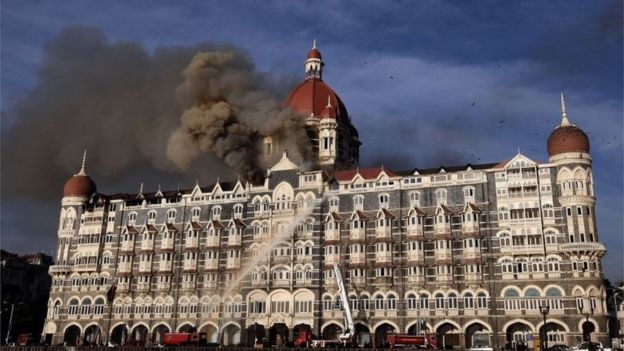 Image copyright AFP
Image copyright AFPPolice had entered the hospital, and a senior officer had fired a round to meet the gunfire coming from an upper floor. The gunmen had left the building and were hiding in a palm-fringed lane behind the hospital when the SUV with dimmed headlights and a flashing red beacon drove up slowly.
Within seconds, the hunters became the hunted. The gunmen promptly ambushed the vehicle and emptied two magazines into it. Only Mr Jadhav had been able to respond – firing three shots at the gunmen from the rear of the vehicle.
The gunmen quickly dragged out the three dead officers from the front and middle seats and dumped them on the street. One of them joked that only one of the dead policemen was wearing a bulletproof vest. They came to the rear to take the three remaining men out, but were unable to open the door.
Mohammad Ajmal Amir Qasab and Ismail Khan then drove off with what they thought were four corpses in the rear.
In reality, one of them was alive; another was breathing shallowly. The two other men were dead.
Suddenly, breaking the silence, a mobile phone began ringing in dying constable Yogesh Patil’s pocket. He had forgotten to put it on silent mode before joining the operation.
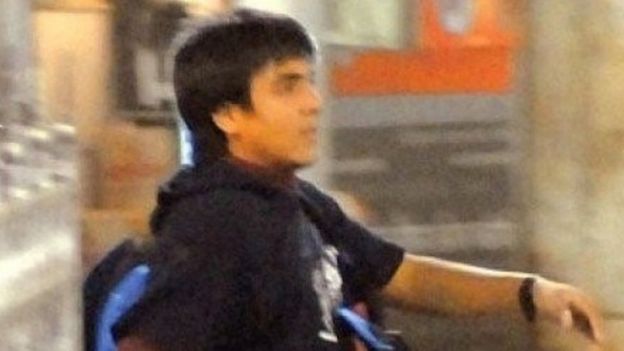 Image copyright Reuters
Image copyright ReutersQasab, who was in the passenger’s seat, pivoted around and fired an additional burst of fire into the rear. The bullets ripped through the middle seat, finally killing Mr Patil.
Mr Jadhav, unbeknownst to the gunmen, now remained the only policeman alive, bathed in blood and buried under a pile of corpses.
“If Qasab had turned his gun a little more I would have been dead.”
Studies of near-death experiences often report people feeling a sensation of peacefulness and a detachment from the body, seeing a bright light at the end of a tunnel and encountering apparitions.
Mr Jadhav, who had cut his teeth fighting crime in Mumbai’s gritty neighbourhoods, says he felt nothing of the sort.
Memories of his family began un-spooling in his mind. He thought his time had finally run out.
“I am going to die very soon,” Mr Jadhav, now 51, remembers telling himself.
“I was remembering my wife, my children, my parents.
“This is the end.”
Mr Jadhav says he made an effort to pick up his loaded automatic rifle which had fallen on the floor, but there was no strength left in his wounded arm. He regretted giving away his 9mm pistol to a colleague before boarding the vehicle. “I could have easily killed the gunmen from the back with a lighter weapon.
“The vehicle was now being driven recklessly without any direction. At a crossing the gunmen fired at bystanders, sparking further panic. Police had fired at the vehicle and a bullet had hit a rear tyre.
The wireless in the vehicle of death crackled with panicky messages of the unfolding attacks. “There’s been some firing from a police van just now!” a message said.
The gunmen drove around for 20-odd minutes until the punctured tyre wore out. They abandoned the vehicle, stopped a Skoda sedan, pulled out its three terrified riders, hijacked the vehicle and drove off towards the city’s seaside boulevard.
There, they ran into a police checkpoint. After a gunfight, in which Ismail and a policeman was killed, Qasab became the only gunman to be caught alive.
“I had played dead, watching everything from the back,” Mr Jadhav says.
He had managed to pick up the wireless receiver and radio the control room. He told them about the ambush, the bodies of the policemen in the lane and in his vehicle and sought help. When the ambulance arrived, he walked into it without assistance, and was taken to hospital.
Among those who were killed in the vehicle were three of the city’s top cops: chief of the city’s anti-terrorist squad Hemant Karkare, additional commissioner Ashok Kamte, and Inspector Vijay Salaskar. After joining the Mumbai police in 1988, Mr Jadhav had worked his way up the ranks, and joined Mr Salaskar’s team to “eliminate” the city’s gangsters.
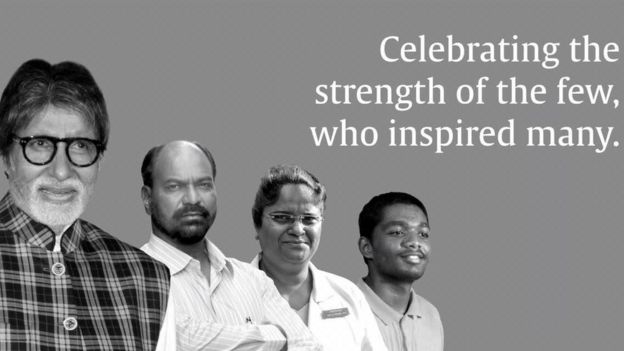
At his one-room home, Mr Jadhav’s wife and three school-going children had followed the attacks on TV all night. They had prayed and howled when the news of the ambush broke.
From the hospital, Mr Jadhav spoke to his wife briefly early the next morning, after which he was wheeled into surgery to have five bullets removed from his arm and shoulder. Doctors treating him were surprised that he had not gone into shock. He told them he had escaped with bullet injuries twice in the past while chasing gangsters. He was back at work in seven months.
Mr Jadhav also became the prime witness in the conviction of Qasab, identifying him in prison, and relating to judges the chilling details of the carnage in the squad vehicle. In May 2010, Qasab was handed the death penalty, and two years later, hanged in a prison in Pune city.
Mr Jadhav received gallantry awards for his bravery and was compensated for his injuries. His eldest daughter was provided with a government job, and his two other children – a son and daughter – are in college studying engineering and computer science.’The gods look after us
Ten years later, life hasn’t changed much for Mr Jadav. At work, he continues to chase gangsters, extortionists and car thieves. Two rounds of surgery later, his partially-disabled arm – “It still hurts quite a bit” – means that he has to be extra careful.
A few things have changed all right. He has to keep calling his wife whenever he goes out for an “operation”, keeping the family informed about his whereabouts – after all, on that fateful November day, he had spent his entire day looking unsuccessfully for a mobster before being called in to help hunt down the militants.
On 26 November, the 10th anniversary of the attack, a film containing an interview with Mr Jadhav will be shown near the Gateway of India overlooking the iconic Taj Hotel, which was one of the prime targets.
Billboards carrying a picture of him, two other survivors and Bollywood superstar Amitabh Bachchan have sprung up all over Mumbai for a memorial organised by The Indian Express newspaper.
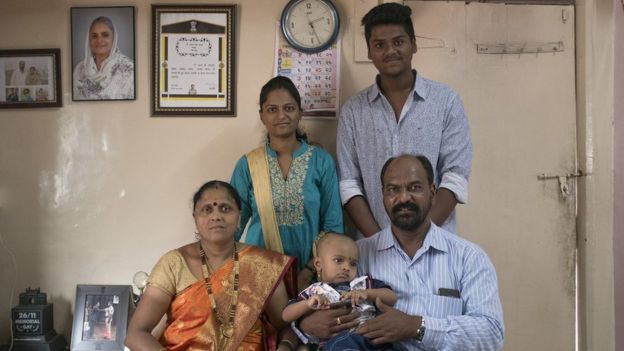
But Mr Jadhav, a tough, non-fussy policeman, will not be in the city. He, along with his family, will be visiting a guru’s ashram in northern India to take his blessings and “find peace”.
“Peace of mind can be difficult to keep after such an incident,” Mr Jadhav says.
“During the nights, when I wake up, I am often unable to sleep again. Some of the memories of the night still return to my mind.
“I often wonder how did I come out alive in the carnage? I have no idea. Was I plain lucky? Was it karma? Was it some higher thing? I guess I will never know.”
Source::bbcnews.co.uk

Readers like you, make ESHADOOT work possible. We need your support to deliver quality and positive news about India and Indian diaspora - and to keep it open for everyone. Your support is essential to continue our efforts. Every contribution, however big or small, is so valuable for our future.

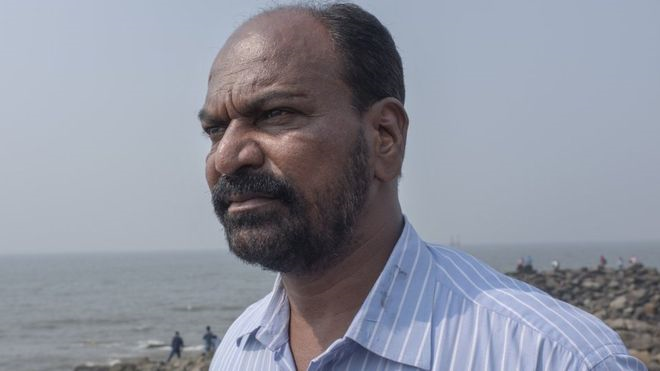



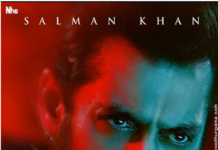







10 years ago my birth city Mumbai was attacked by callous Pakistani murderers and to think having seen all unfold that the tragedy lasted 60 hours and not a lot seems to have been done to bring the misery to an end earlier is the only lasting memory. Mr Jadhav survived to tell the tale and to date I am still not sure how come three top cops died in our city and only one attacker survived. Was there any inside knowledge or help? How did the terrorists know so much about our city? We’re they helped by their local contacts?